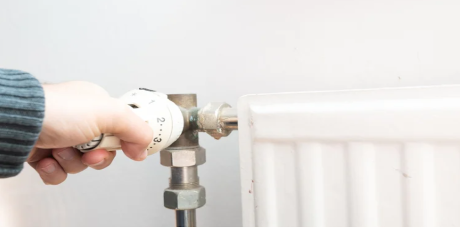Can personal experiences inform how Ireland deals with energy poverty? 06 Sep 2023

Analysis: personal experiences of vulnerable households can guide strategies for ensuring energy needs are met - Claudia Hihetah is a PhD Researcher with the Energy Policy and Modelling Group at MaREI at the Environmental Research Institute, UCC. Claudia's research focuses on developing effective policy responses to tackle energy poverty
Energy poverty is a critical issue that significantly impacts many Irish households, with as many as 43% of households potentially at risk. In Ireland, families that spend more than 10% of their income on energy bills are considered energy-poor. Energy poverty is a social issue that touches lives and livelihoods. It becomes particularly severe in colder periods due to inadequate heating options.
Those affected often turn to more affordable fuels like oil or solid fuels to warm their homes, which in turn harms the environment because it produces carbon emissions. They might also limit heating specific rooms, like kitchens and bedrooms, where they spend the most time, to save on energy bills. Unfortunately, such practices take a toll on physical and mental health, leading to higher risks of respiratory and heart problems. Depression rates tend to be higher in these homes. It also affects social connections; for instance, cold homes might discourage people from hosting friends and family. Longer-term effects include impact on education and job opportunities.
What leads to energy poverty and who is at risk?
Three key factors lead to energy poverty: low household income, high energy costs, and poor energy efficiency of homes. Other factors, such as weather conditions and broader social and political factors, including the cost-of-living crisis and rising domestic electricity bills, further contribute to the vulnerability of households. Low-income homes are particularly affected and face various vulnerabilities depending on their circumstance. Such families face challenges that make it difficult to access the essentials needed to live an acceptable minimum standard of living.
Those especially vulnerable to energy poverty include older people, people with disabilities, young people, women and single-parent families, those in shared households, and marginalised communities. Families with limited funds struggle to afford food and healthcare, affecting their ability to pay for energy costs. Older people face added difficulties due to fixed incomes, health issues, and limited mobility that worsen their vulnerability to energy poverty.
The Government's Energy Poverty Action Plan features measures such as the €600 electricity credit we all benefitted until April 2023 and the expansion of the Fuel Allowance Scheme to include certain older people who were previously left out. It also makes provisions for Additional Needs Payments and seeks to accelerate free home energy upgrades, prioritising those in poorly performing homes.
The Plan aligns with the National Climate Action Plan to ensure the country can halve its carbon emissions by 2030 and reach net zero by 2050. Despite its ambitious intentions, more people are falling into energy poverty due to shortcomings such as failing to put people at the centre of decision-making. A lack of inclusion of households' personal experiences is one missing element in the current measures. So, how can such experiences shape energy poverty measures in Ireland?
Targeted and tailored solutions
By knowing the experiences of those in and at risk of energy poverty, we can learn about their specific challenges and needs and prioritise them accordingly. It allows us to develop targeted and appropriate interventions for vulnerable households and avoid a one-size-fits-all solution. For example, measures can be designed to make homes more energy-efficient and energy services free and affordable for those most affected by energy poverty and require the most immediate solutions.
Energy justice and energy awareness
Personal experience is essential for advancing energy justice and raising energy awareness. It helps to identify and address unique household situations such as economic barriers, limited knowledge about energy options, and existing government supports. Some families might require further clarification regarding the available measures and may have misconceptions about these solutions. For instance, whether they must vacate their homes and find temporary housing during home retrofits. This uncertainty might lead them to avoid applying for the Government’s free home energy upgrades scheme, even if they are eligible.
Revealing hidden vulnerabilities
Qualitative evidence, which includes people's stories and experiences, is needed alongside quantitative data. It helps to better understand how energy poverty affects various aspects of life, like health, social relationships, finances, and education, which may not be readily visible when quantified. By considering these personal experiences, we can strive for a healthier population where access to everyday needs like cooking, turning on the lights and keeping warm or cool at home is easily accessible and not lacking.
With colder months approaching, the Government needs to recognise and include the experiences of energy-poor households and those at risk in their policies. On an individual level, boost your energy awareness by learning how to read your energy bills, assessing if you qualify for free energy upgrades, and adopting simple ways to save energy and reduce costs. And do not hesitate to share personal experiences; it is valuable in addressing broader societal challenges.